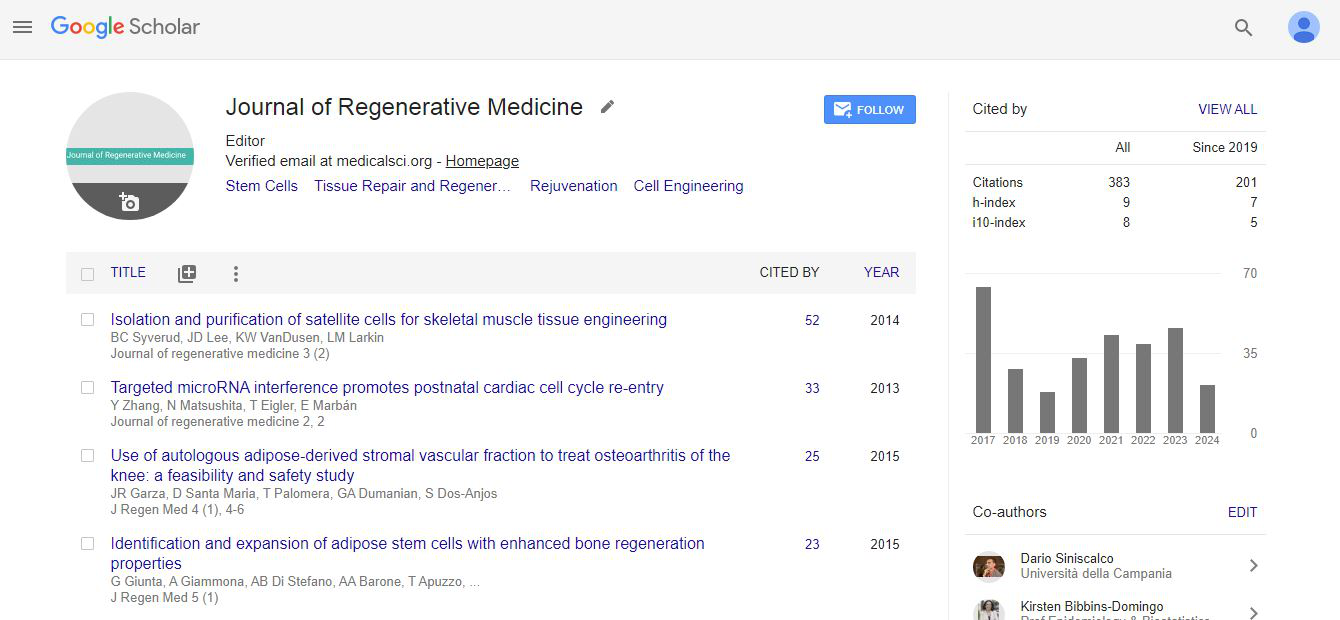Analysis of AR, ERα, ERβ and p63 in the epithelium of ventral prostate submitted to intrauterine protein malnutrition
Jaqueline C Rinaldi, Caroline N Barquilha, Amanda V G Bugiga, Sérgio L Felisbino and Luis Antonio Justulin Jr
University Estadual Paulista, Brazil
: J Regen Med
Abstract
Adverse conditions during pregnancy may lead to irreversible changes in the fetus by the fetal programming mechanism. Changes can be induced by maternal protein malnutrition (MPM), creating an imbalance of androgen levels thus directly influencing the morphophysiology of dependent structures, such as the prostate. Our project aim is to investigate the effects of maternal gestational protein malnutrition on the development of the rat ventral prostate (VP) by focusing on the rate of basal epithelial cell proliferation and androgen receptor expression. Briefly, 20 Sprague Dawley dams were distributed into two groups: control (NP; fed a normal diet containing 17% protein) or a restricted protein diet (RP, fed a diet containing 6% protein) during gestation. After birth, all animals were maintained on the standard diet. Euthanasia was performed at postnatal day 35 (PND35) and the ventral prostate of these animals was dissected, weighed and processed for IHC (Ki67, p63 and AR) and Western blot analysis (PCNA, p63 and AR). RP treated animals showed lower body weights compared to NP control treated animals at PND35. A reduction of testosterone plasma levels as well as the absolute and relative values of VP weights from the RP treated animals compared to the NP control treated animals was observed. Normal glandular architecture was observed in both groups. There was no change on AR protein expression in the VP tissues. However, the proliferation rate and p63+ cells were higher in the RP group indicating that the low androgenic stimulation induced by MPM promoted a delay in the VP development. As a consequence, the proliferation/differentiation cell dynamic was impaired, leading to an increase in the number of basal cells and damaging their differentiation into secretory luminal cells.
Biography
Email: jak.rinaldi@gmail.com
 Spanish
Spanish  Chinese
Chinese  Russian
Russian  German
German  French
French  Japanese
Japanese  Portuguese
Portuguese  Hindi
Hindi 